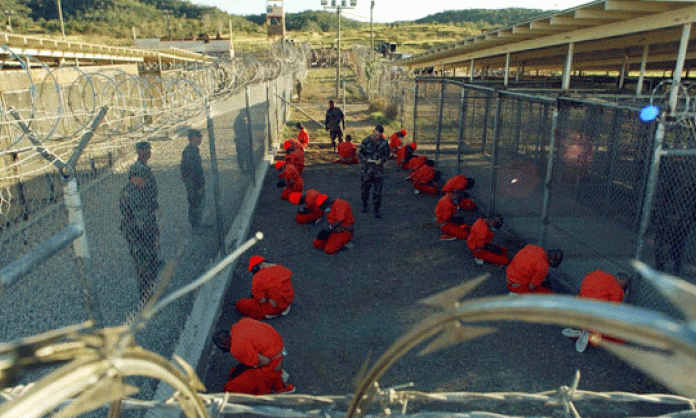The US state is in the business of manufacturing terrorism. Since the 9/11 attacks, law enforcement agencies apparently have entrapped hundreds of Muslims in terror plots, and created a siege-like atmosphere throughout the country.
Human Rights Watch and Columbia Law School have released a report, Illusion of justice: human rights abuses in US terrorism prosecutions, which reveals that, with only four exceptions, all of the high-profile domestic terrorism plots of the last decade were FBI “sting” operations. In other words, they were conducted with an undercover FBI agent or paid informant playing an active role. Of more than 500 federal counterterrorism convictions since 11 September 2001, 50 percent resulted from informant-based cases.
Andrea Prasow is deputy Washington director at Human Rights Watch. She says that “many of these people would never have committed a crime if not for law enforcement encouraging, pressuring, and sometimes paying them to commit terrorist acts”.
The FBI targets vulnerable people, particularly those with mental illness, those seeking religious guidance and the indigent. Take the example of the “Newburgh Four”. They were accused of planning to blow up synagogues and attack a US military base in 2010. An informant offered $250,000 to the group’s “leader” James Cromitie, a broke former Walmart employee.
The informant came up with the plot, provided the weapons, directed the recruitment of the other participants and even drove them around to carry out the assigned missions. A judge reviewing the case on appeal observed: “The government came up with the crime, provided the means, and removed all relevant obstacles.” All four defendants are serving 25-year prison terms.
Most convictions in terrorism-related cases since 9/11 are based on so-called “material support” laws, which were extended under the USA PATRIOT Act. Under these laws it is a crime to provide any aid, even in the form of speech, to a blacklisted organisation.
Abusive conditions of confinement are rife both before and after sentencing. Uzair Paracha was moved to solitary confinement nine months after his arrest on charges of material support, which severely impeded his ability to assist his own defence.
“You could spend days to weeks without uttering anything significant beyond ‘Please cut my lights’,” he wrote to the report’s researchers. After he was convicted, he was permitted to communicate with other inmates. “I faced the harshest [treatment] while I was innocent in the eyes of American law.”
Another child of the War on Terror is the Communications Management Units (CMU) in Illinois and Indiana. In the units, a prisoner’s every word is recorded, letters and phone calls are severely restricted and visitors are strip-searched before communicating through video chat. One detainee called it “a touch of hell”: “My children … could see but not touch me, as though I had some sort of contagious disease.”
As at Guantanamo Bay, Muslims are the targets. They make up roughly 70 percent of the prisoners in CMUs despite being only 6 percent of the federal prison population and less than 1 percent of the total population.
The US state’s increasingly repressive domestic security agenda has, through the demonisation of Muslims, normalised a frightening level of government intrusion into private lives and also serves to justify the military industrial complex.




